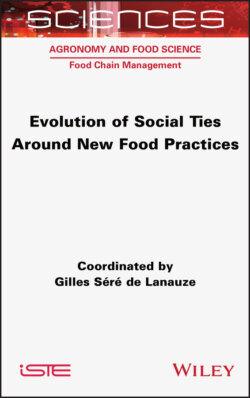Читать книгу Evolution of Social Ties around New Food Practices - Группа авторов - Страница 28
1.6. Does eating together always promote well-being?
ОглавлениеAs the previous sections show, the meanings associated with eating together are essential in maintaining this practice, especially when it is associated with a fulfilling and healthy family/social life:
“It’s still nice to share a meal” (Camille), “Eating alone quickly becomes a mess” (Marion).
These quotes summarize how conviviality is, quite intuitively, a positive aspect of eating. However, in other cases, eating together can be seen as a constraint:
– The constraint would be to do a lot, in fact?
– Yes, to do a lot and to do it in a very repetitive way every day, every day, every day […]. I knew that in my family – because we were a large family – so I always remember my mother saying to herself, “What am I going to do tonight?” I know that I have things and so it’s the desire to eat something at a given moment, well, I say to myself, “I want this, how am I going to prepare it” […], that’s why I put pleasure in the middle because there is the pleasure of touching the products, mixing them and the smells, the colors, the heat, etc., and then preparing something pretty (Esther).
Thus, this quote confirms that eating together requires logistics and upstream work for the person in charge of the meal, and that eating alone can sometimes relieve this burden without affecting the quality of the food. Moreover, it illustrates that eating alone does not exclude taking care of our diet and enjoying eating well.
Earlier, the chapter identified that eating together refers to a set of more or less tacit rules, and eating alone would allow freedom from them, which may, for some, be seen as a benefit:
My diet has become more chilled, in the sense that the fact that living with my parents has changed the way I eat, because in a way we are infantilized when we live with our parents as adults and we are subjected to “don’t do this, don’t do that, we eat at such and such a time, we do this, we do that” (Bérengère).
This may allow the pursuit of certain objectives, which are more difficult to achieve during shared meals:
I realized that I lose weight more easily when I am alone because I manage my rhythm, I let go, I am not managed anymore because of the look of others, not that of my daughter, nor that of my boyfriend, nor that of my family, I manage myself calmly, I am at ease and I have the impression that the weight goes away by itself too (Amélie).
These findings invite the question of well-being related to eating together, echoing the work of Mugel et al. (2019). This work employs the concept of eudemonic food well-being, according to which well-being is not only about pleasure (hedonic well-being) but also about the role of experience and the meaning given to actions. In light of this concept, we understand that eating together is not an absolute guarantee of well-being, and that it is necessary for the experience to be in line with the meanings of individuals for it to be a source of well-being. More broadly, particular circumstances, such as the lockdowns experienced by the French from March 2020, make it possible to qualify the fact that eating together is always a vector of well-being: in circumstances as constrained as the lockdowns were, preparing a meal every day for a household in which relationships are not always easy can be a major challenge, and the shared meal does not always have the power to generate conviviality and shared well-being. This invites consideration of a complex relationship between eating together and well-being that takes into account the constraints: eating together can increase well-being, but it is also necessary that some form of well-being (e.g. good understanding between guests) precedes – or is associated with – eating together.
